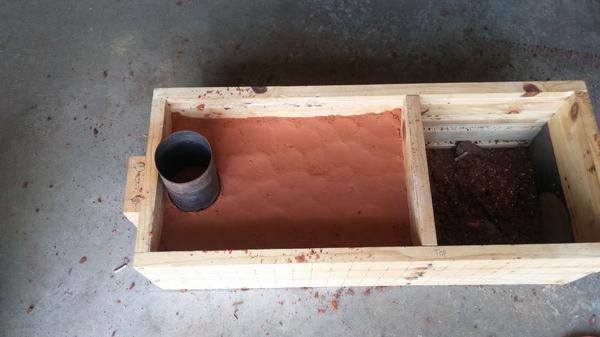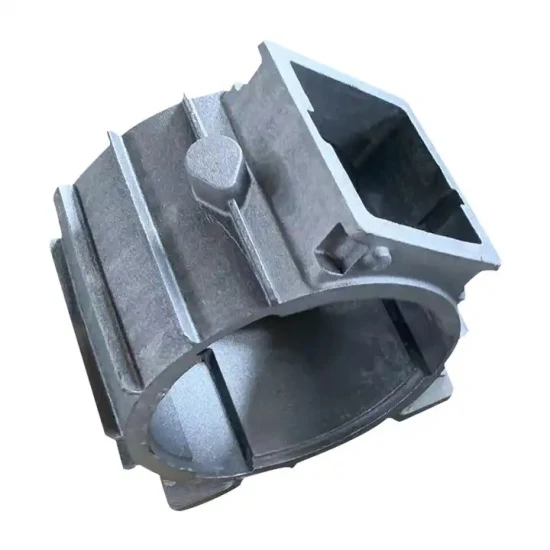More About Alcast Company
More About Alcast Company
Blog Article
The Buzz on Alcast Company
Table of ContentsAlcast Company Can Be Fun For EveryoneHow Alcast Company can Save You Time, Stress, and Money.Rumored Buzz on Alcast CompanyNot known Facts About Alcast CompanyAlcast Company Can Be Fun For EveryoneThe Ultimate Guide To Alcast Company
The subtle difference depends on the chemical material. Chemical Comparison of Cast Aluminum Alloys Silicon promotes castability by minimizing the alloy's melting temperature level and boosting fluidity during casting. It plays a crucial role in enabling complex molds to be filled up accurately. Furthermore, silicon adds to the alloy's stamina and use resistance, making it beneficial in applications where durability is essential, such as automobile parts and engine components.It additionally enhances the machinability of the alloy, making it much easier to process into completed products. In this means, iron adds to the total workability of aluminum alloys.
Manganese contributes to the strength of aluminum alloys and improves workability (aluminum metal casting). It is generally used in functioned aluminum items like sheets, extrusions, and accounts. The presence of manganese help in the alloy's formability and resistance to fracturing during manufacture processes. Magnesium is a light-weight aspect that supplies toughness and effect resistance to light weight aluminum alloys.
The Alcast Company Ideas
It enables the production of lightweight parts with exceptional mechanical properties. Zinc boosts the castability of aluminum alloys and assists control the solidification process during spreading. It boosts the alloy's stamina and hardness. It is commonly found in applications where detailed forms and fine information are needed, such as ornamental spreadings and particular automotive components.

The main thermal conductivity, tensile toughness, yield stamina, and prolongation differ. Select appropriate resources according to the performance of the target item generated. Among the above alloys, A356 has the highest possible thermal conductivity, and A380 and ADC12 have the least expensive. The tensile restriction is the contrary. A360 has the most effective return strength and the highest possible prolongation rate.
6 Easy Facts About Alcast Company Described

In precision spreading, 6063 is well-suited for applications where complex geometries and top quality surface finishes are vital. Instances consist of telecommunication units, where the alloy's premium formability permits sleek and cosmetically pleasing styles while keeping architectural honesty. Similarly, in the Lighting Solutions market, precision-cast 6063 elements develop stylish and effective illumination fixtures that require intricate shapes and great thermal efficiency.
It my company causes a better surface area coating and better deterioration resistance in A360. Moreover, the A360 shows exceptional prolongation, making it suitable for complicated and thin-walled elements. In accuracy spreading applications, A360 is fit for industries such as Customer Electronics, Telecommunication, and Power Tools. Its boosted fluidness allows for complex, high-precision parts like smartphone housings and interaction tool housings.
Our Alcast Company PDFs
Its distinct residential properties make A360 an important choice for precision spreading in these markets, boosting item longevity and high quality. Aluminum alloy 380, or A380, is an extensively used casting alloy with numerous distinctive characteristics. It provides excellent castability, making it a perfect selection for precision casting. A380 displays good fluidity when molten, ensuring intricate and in-depth mold and mildews are accurately replicated.
In precision casting, light weight aluminum 413 beams in the Consumer Electronics and Power Tools industries. This alloy's remarkable rust resistance makes it an outstanding selection for outside applications, making sure long-lasting, resilient products in the discussed sectors.
An Unbiased View of Alcast Company
Once you have determined that the light weight aluminum pass away casting process is suitable for your project, an essential next action is selecting the most suitable alloy. The light weight aluminum alloy you choose will substantially impact both the casting process and the residential or commercial properties of the last item. Due to this, you should make your decision carefully and take an enlightened strategy.
Figuring out the most suitable light weight aluminum alloy for your application will indicate evaluating a broad range of qualities. The initial category addresses alloy qualities that affect the production procedure.
10 Easy Facts About Alcast Company Explained
The alloy you choose for die casting directly affects a number of aspects of the spreading process, like exactly how simple the alloy is to collaborate with and if it is prone to casting issues. Warm breaking, additionally called solidification breaking, is a typical die casting issue for aluminum alloys that can cause internal or surface-level rips or splits.
Certain aluminum alloys are much more vulnerable to hot breaking than others, and your selection must consider this. It can harm both the cast and the die, so you should look for alloys with high anti-soldering residential properties.
Rust resistance, which is currently a significant characteristic of light weight aluminum, can vary significantly from alloy to alloy and is an essential characteristic to think about relying on the environmental problems your item will be subjected to (Foundry). Put on resistance is one more building frequently looked for in light weight aluminum products and can separate some alloys
Report this page